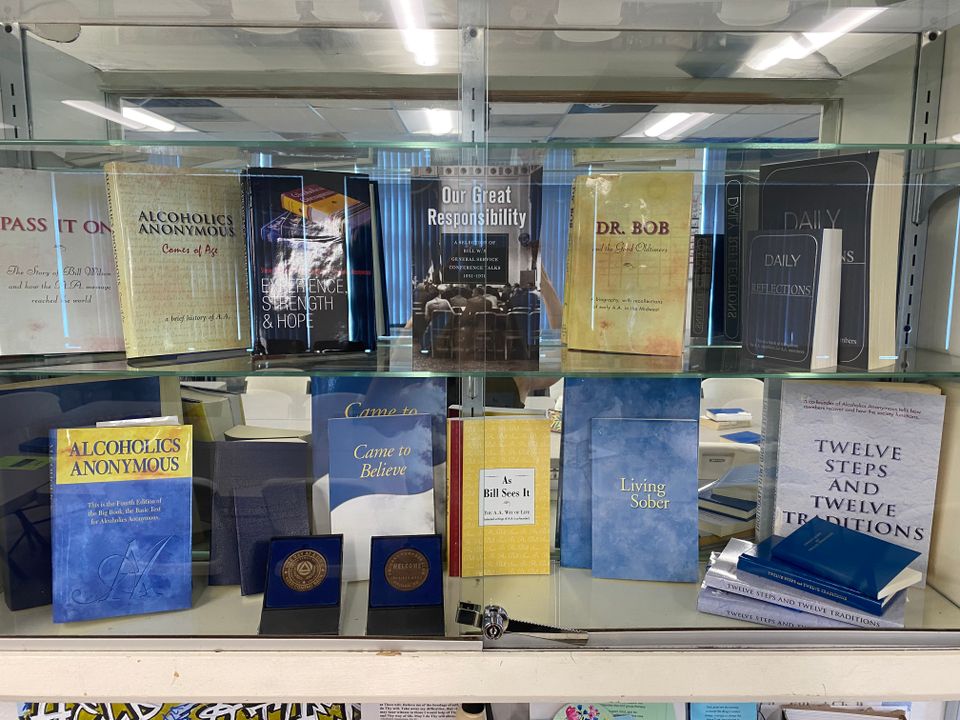Frequently Asked Questions (FAQs) About Alcoholics Anonymous (AA) Meetings
What is Alcoholics Anonymous (AA)?
- Alcoholics Anonymous is a fellowship of men and women who share their experience, strength, and hope with each other that they may solve their common problem and help others to recover from alcoholism.
~ The only requirement for membership is a desire to stop drinking. There are no dues or fees for AA membership; we are self-supporting through our own contributions.
~ AA is not allied with any sect, denomination, politics, organization, or institution; does not wish to engage in any controversy, neither endorses nor opposes any causes.
~ Our primary purpose is to stay sober and help other alcoholics to achieve sobriety.
Who can attend AA meetings?
- AA meetings are open to anyone who has a desire to stop drinking. There are no age, gender, religious, or other requirements for attendance.
Are AA meetings religious?
- AA is a spiritual program, not a religious one. While spirituality is discussed, AA does not endorse any specific religion. Members are encouraged to find their own understanding of a higher power.
What happens during an AA meeting?
- AA meetings vary, but most include members sharing their personal experiences, discussing the 12 Steps, and offering support and encouragement to one another. Some meetings may also have literature readings or guest speakers.
Do I have to speak at a meeting?
- No, sharing is voluntary. You are welcome to attend and simply listen if you prefer. Many find that sharing helps them connect with others and gain insights into their recovery.
Is anonymity respected in AA meetings?
- Yes, anonymity is a fundamental principle of AA. What is shared in meetings should not be discussed outside of the meeting to protect members' privacy and encourage open sharing.
Are there fees or dues for AA meetings?
- AA is self-supporting through voluntary contributions from its members. There are no dues or fees required to attend meetings. You can contribute if you are able, but it's not mandatory.
Is AA a therapy or treatment program?
- No, AA is a mutual support fellowship, not a therapy or treatment program. It is often used as a complement to professional treatment and therapy for alcohol addiction.
How can I find an AA meeting near me?
Can family members or friends attend AA meetings with me?
- AA meetings are primarily for individuals with a desire to stop drinking, but some groups may have open meetings where friends and family are welcome to attend. Al-Anon and Alateen meetings are specifically designed for the loved ones of alcoholics.
What if I'm not sure if I'm an alcoholic?
- AA welcomes anyone who has a desire to stop drinking. If you're unsure about your relationship with alcohol, attending a few meetings and listening to others' stories may help you gain clarity.
Are there different types of AA meetings?
- Yes, AA offers various types of meetings, including open meetings (for anyone), closed meetings (for those with a desire to stop drinking), women-only, men-only, LGBTQ+ focused, and more. There are also specialized meetings for certain age groups or interests.
How can I become a member of AA?
- You become a member of AA by attending meetings regularly and considering yourself a member when you have a desire to stop drinking. There are no formal membership processes or applications.
Remember that AA is a supportive and inclusive community focused on helping individuals achieve and maintain sobriety. If you have more questions or concerns, attending a meeting and speaking with fellow members can provide valuable insights and guidance.

